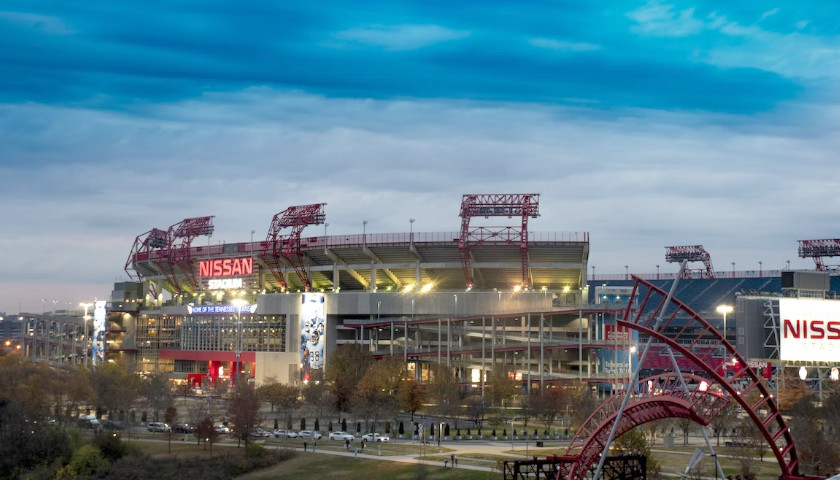by Daniel J. Smith and Justin Hayes
Mayor John Cooper wants to saddle Nashvillians with an estimated $1 billion in taxes to pay for a new stadium for the Tennessee Titans, blaming a poorly negotiated contract and the shoddy craftsmanship of Nissan Stadium. But here’s the kicker: the mayor and city officials appear to be entertaining the same stadium designer who helped with the construction of the existing subpar stadium for this new boondoggle.
Absurd details like these surround this entire deal, and it’s precisely that sort of rushed and opaque process that left taxpayers in this bad situation in the first place. It’s also why state and municipal funding of sports stadiums almost never produce the promised economic benefits, as numerous sports economists have found time and again.
Mayor Cooper is right; Nissan Stadium has major issues. But a good portion of these costs appears to be grossly overexaggerated. Upgrade and repair estimates, for instance, have ballooned from estimated tens of millions in 2016 to $600 million in 2021 to $1.2 million earlier this year to most recently, $1.8 billion. The estimated costs of renovations also greatly exceed the average costs incurred by much bigger cities for renovating their sports stadiums. Tampa Bay spent $165 million in inflation-adjusted dollars in 2018 to renovate Raymond James Stadium and Phoenix is currently spending $96 million to upgrade the State Farm Stadium.
These cost estimates were provided by the Titans. But it appears that Mayor Cooper was already pitching a new stadium to taxpayers before he had even seen detailed estimates. Neglecting his fiduciary duty to taxpayers, it appears the mayor has no plans to challenge these suspiciously escalating estimates and contractual obligations with an independent engineering and legal assessment. And why should he when Mayor Cooper knows he will reap the political benefits for helping the home team build a new stadium long before economic studies show there was no actual upside for taxpayers.
Underlying the cost inflation there appears to have been major problems with the construction of Nissan Stadium. In this case, the first course of action for city officials should be to seek remedy with the HOK Sport, the architectural firm that built Nissan Stadium. Rather than go this route, interestingly enough, the initial concepts for the new stadium being proposed by the Titans is designed by David Manica, who was a Senior Design and Principal architect at HOK Sport when they built Nissan Stadium. ‘Nashville’ the television series – also subsidized by the City of Nashville – hardly could have written a more dramatic storyline.
A new stadium appears to have been the goal of the mayor’s office and the Titans the entire time. And while they claim that they would structure the deal in such a way as to avoid burdening taxpayers, it doesn’t stand up to simple scrutiny. Dedicating specific sales tax revenue, even if just from the stadium and the vicinity of the stadium, takes revenues away from the general fund. That tax revenue must either be replaced or spending on other items must be reduced, meaning traditional government services, or projects more beneficial to Nashville residents than a billionaire’s private business, must be sacrificed.
Tax increases or budget cuts elsewhere will fall on all Nashvillians. The cost to Nashvillians of a new stadium will amount to around $3,500 per household or $115 per year for 30 years. Most of these households will never attend a game or benefit from the stadium; in fact, they are more likely to be inconvenienced by gameday traffic.
And even a hotel tax will unfairly fall on people not using the stadium, since not everyone visiting Nashville does so to attend games or events. Hotels, which are often locally owned and staffed, will have to bear a good portion of the tax to keep their overall rates competitive or risk losing business.
These projections also assume that cost overruns will not be borne by the city. Thankfully the cost overruns for GEODIS Park were covered by Nashville SC, but the city was not similarly protected when it came to the major unexpected costs of building the First Tennessee Park for the Nashville Sounds. It is unclear what types of protection would be in place for a new Titans stadium.
If Nashville commits taxpayers to pay for a new stadium over the next couple of decades, that means a new contract must be written. But how can we be so sure the new contract will be any better than the old one that got us into this circumstance? Copies of the old lease with Nissan Stadium had to be acquired via public records request and do not appear to require anywhere near the extensive renovations the Titans have alleged.
While it appears that Nashvillians will be protected from being held responsible for stadium upgrades and repairs, what is to prevent taxpayers from being hooked for something else? Mayor Cooper no longer appears to be representing the taxpayers of Nashville in his dealings with the Titans, so a process lacking transparency resulting in boondoggle commitments down the road seems not only plausible but expected.
– – –
Daniel J. Smith is the director of the Political Economy Research Institute at Middle Tennessee State University and professor of economics at the Jones College of Business. Twitter: @smithdanj1. Justin Hayes is a communications specialist and a concerned Nashville taxpayer.








